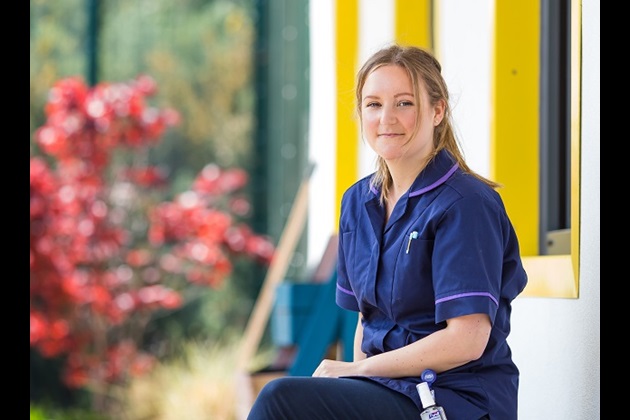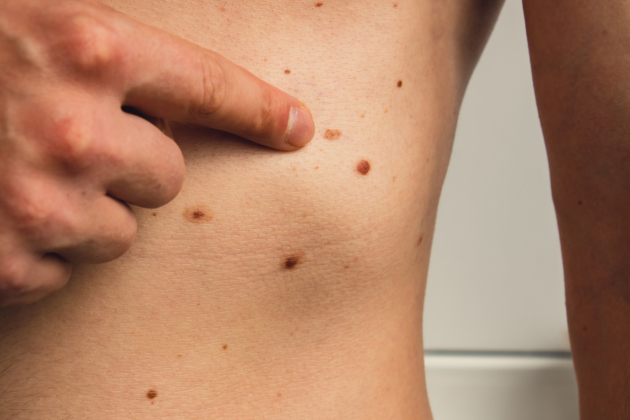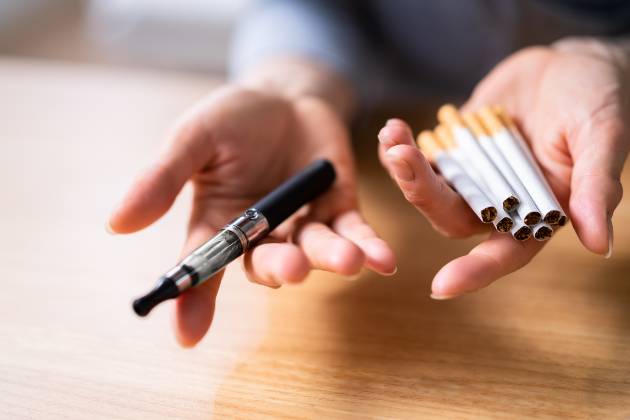According to NHS statistics, up to 20% of women have mental health concerns in pregnancy and during the first year after having a baby, with more than one in 10 women experiencing postnatal depression (PND). Untreated, perinatal mental illness is one of the leading causes of death for women during pregnancy and the first year after birth.
“It’s natural to feel overwhelmed, tearful and anxious after the birth of a baby," says mental health nurse Hannah Fieldhouse who manages Jasmine Lodge mother and baby unit (MBU) in Exeter, Devon. "But sometimes these symptoms don’t improve and can lead to thoughts about harming themselves or others.”
Specialist hubs
Historically, there’s been a lack of integrated physical and mental health care for women during pregnancy and following birth. The consequences of not accessing high-quality perinatal mental health care are estimated to cost the NHS and social care £1.2 billion a year.
This will hopefully mean early intervention for women experiencing depression in pregnancy and beyond
In response to this, the government has begun introducing 26 specialist mental health hubs for expectant, new and bereaved mothers as outlined in the NHS Long Term Plan. The hubs across England bring together maternity services, reproductive health and psychological therapy under one roof.
“It’s great we’re now getting these services to support those who need it,” says Hannah. “We work with the perinatal community team and this is a brilliant way to link together maternity and perinatal mental health services. These hubs will hopefully mean early intervention for women experiencing depression or anxiety in pregnancy and beyond and will prevent them having to come into hospital further down the line.”
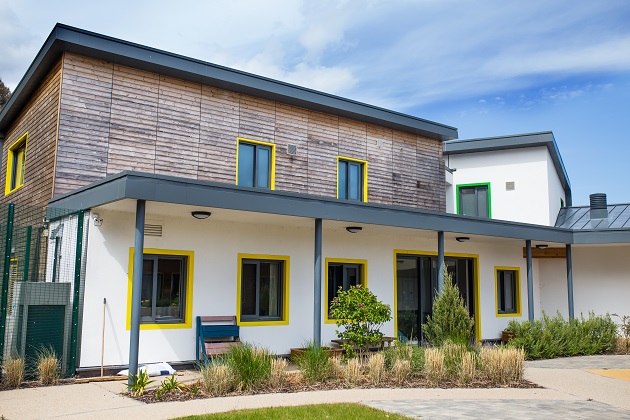
Medical emergency
Hannah manages the eight-bed unit for women experiencing moderate to severe mental health conditions. The unit has around 40 staff members, from doctors to nursery nurses, with most patients staying around a month. Many of Hannah’s patients have been referred by a GP or health visitor.
Sometimes it’s their first contact with mental health services or they might already have an existing mental health issue such as bipolar, schizophrenia or depression, which can lead to an increased risk of feeling unwell when pregnant or with a newborn.
Some women experience post-partum psychosis, which is a medical emergency. “The severity can vary; some experience visual disturbances, or hallucinations,” says Hannah. “Some are removed from reality and have disturbing ideas about different beliefs and paranoid thoughts. In these cases, being at the unit is the safest place to be for mum and baby.”
With the right support most women make a full recovery
Pandemic patients
During the pandemic, the number of women accessing the unit reduced initially, but Hannah stresses the importance of early intervention. “The pandemic made some people think they couldn’t access our service, but we remained open. Not seeking help earlier led to some women experiencing more severe symptoms and having to be admitted.”The pandemic also affected how staff arranged the day-to-day programme. “A lot of our work is group-based activities, which had to reduce to more one-to-one working. Some services were offered over the phone, such as psychotherapy. And if we had someone admitted with COVID-19, we were able to isolate them in their own room with access to the garden, so they at least were able to get outside.”
Breaking the stigma
With the right support, including self-help strategies and therapy, most women make a full recovery. “We take a holistic approach. There’s a team of nurses, support workers, nursery nurses, occupational therapists, psychologists and psychiatrists working on a 24/7 basis to make sure we are keeping women and their babies safe.”
The unit is very mum and baby focused; there’s a therapeutic programme for practical things such as cooking a meal with a newborn, but also a personal trainer to help mums develop their own physical wellbeing. When someone is ready to leave the unit, the local mental health team is on hand for support once they’re back home.
“Part of my job is breaking down the stigma of having mental health crises and I’m passionate about perinatal mental health. I feel strongly that people can parent while also experiencing poor mental health," Hannah says. "The most rewarding part of my job is seeing a person receive treatment and recover, while maintaining a relationship with their infant. A huge role the MBU plays in a person’s recovery is supporting someone to manage their mental health alongside becoming a new parent."I'm passionate about perinatal mental health
‘The unit completely changed my life’
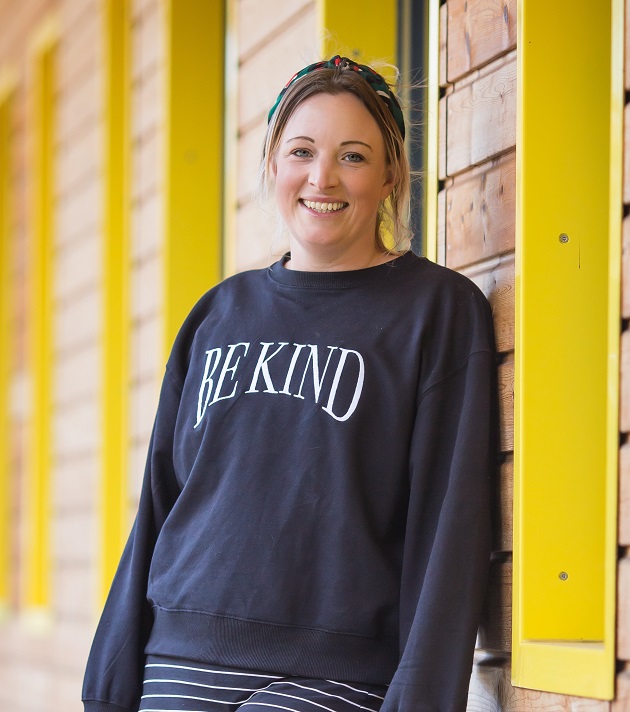
Emma became unwell after the birth of her second child and was one of the first patients on the unit three years ago
I’d suffered with manageable anxiety for some time, but I just dealt with it. It felt normal. But when I became ill after having my second child, my time as a patient in the unit gave me the opportunity to address my anxiety issues too.
The six weeks I spent there completely changed my life. Being there made me feel safe. When I arrived, I hadn’t slept for four days but I was now given the space to focus on me and my baby.
The nursery nurses were there for guidance and advice too. This is so important when you feel you don’t know what you’re doing,
I regularly saw an amazing psychologist and that made a huge difference. I also had a weekly appointment with a psychiatrist who helped me with my medication.
I’m now employed at the unit as a peer support worker. I help people like me, and the job is so rewarding. I run regular groups, some to help with bonding with baby, such as the mother and baby singing group, and other groups for mums to focus on themselves, like the nail painting group. I also run mindfulness sessions and am there as a support for the mums on this busy ward, acting as a bridge between them and the clinical staff.As someone who's been there, patients feel they can trust me
As someone who’s been there before, patients feel they can trust me and talk to me. It can be very emotional.
I had such a positive experience in the unit and am so grateful for it.
Carmel Bagness is the RCN’s Professional Lead for Midwifery and Women's Health
Providing the necessary mental health support and picking up conditions as early as possible in pregnancy is a critical part of maternity care. The service potentially offered by the new specialist mental health hubs will not only benefit the woman’s health and wellbeing, but also that of her baby, her family and her support network.
We know that women’s mental health has been affected by the pandemic. Many will have had to give birth without their partners or support person present, but they have also had to cope with the anxiety of being pregnant during a pandemic.
While the new hubs are a step in the right direction, we need further development of services that will support women with mild to moderate symptoms, as well as those with more severe conditions relating to mental wellbeing. We must ensure these services are adequately funded and staffed by appropriately trained and qualified professionals from across the medical, nursing and midwifery sectors.
Most importantly of all, we must never lose sight of the individual woman. We still have a society that views physical health differently to mental health, and there remains a certain amount of stigma around it. Mental health is not something to be shied away from, nor should it be underestimated in terms of its impact on women and the most important people in their lives.
More information
The RCN Women's Health Forum and Midwifery Forum have over 5,000 members who share their expertise and knowledge covering all aspects of women's health and midwifery. You can join both forums for free.


